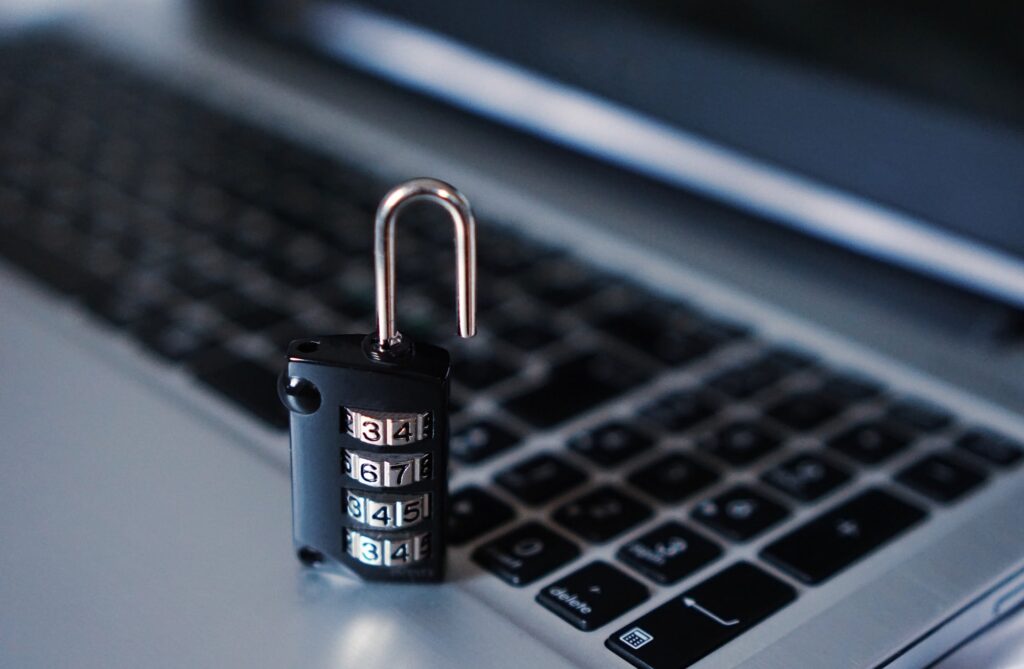“Prevention is better than the cure.” We will face many risks and uncertainties in this highly globalised and modern technological world. Among them, technological threats play a prominent place. This article will discuss how to secure your Laptop in six easy and essential ways to ensure all your data and privacy in the long run.
The six tips are as follows.
- Add a password-protected screen saver.
- Encrypt your hard drive
- Add an antivirus
- Set a password
- Update your software
- Backup your data
Add a password-protected screen saver screensaver is a program that displays a moving image or pattern on the monitor screen after the user has been inactive on the PC for a specific period. The goal was to protect the older displays in this way. It contains a setting that causes the login screen to appear when the screensaver resumes. Some users may prefer to lock their system when they are gone for a set amount of time. After displaying the screensaver, it will close the computer.
Numerous ways will help to enable the password-protected screen saver to a laptop. Following are a few methods.
Method 01: We can enable screen saver by using the screen saver settings in windows. When the user sets the screensaver, the screen won’t lock.
Figure 01: https://appuals.com/password-protect-the-screensaver-in-windows-10/
- Method 02: A Windows feature called Group Policy has several kinds of operating system settings.
- The screensaver password protection can be turned on and off using the Group Policy Editor. Additionally, it will make the checkbox greyed out, making it impossible for non-administrator users to change it.
- Method 03: Using the Registry Editor is another way to set up and off the screensaver password security setting. A database called the ‘Windows Registry houses’ has all the data related to the operating system and apps. The Registry will already be set up for the same option if you previously utilised the Group Policy Editor technique. However, you must manually configure it if you use this approach directly.
- Encrypt your hard drive
This is the most robust defence against possible theft and cyber attacks. Encryption is the finest type of laptop protection. Login passwords aren’t a guarantee of security because determined hackers can bypass your operating system’s login page, and thieves can steal your Laptop’s hard drive and read contents directly.
Files and data are transformed into code through encryption, hiding their actual contents and making it far more difficult for hackers to steal your information. Hackers and thieves won’t be able to boot your Laptop or access any files on the hard drive without entering the correct encryption key if you encrypt your hard disk. Encryption offers a strong defence against unauthorised access attempts, but you may wish to keep the encryption key on a different gadget like a USB drive or your phone.
Figure 02: https://media.kaspersky.com/en/business-security/Kaspersky-Full-Disk-Encryption-Technology.pdf
- Add an antivirus
Malicious software cannot affect your computer without a strong antivirus program. Windows Security is a fantastic antivirus software package that comes with Windows. Macs come with built-in antivirus security, but it could be adjustable. If you want greater control over your security, install a third-party solution like Avira, AVG, Eset, F-secure, Bitdefender, etc.
Figure 03: https://senicttech.com.my/2018/02/12/why-you-need-antivirus-software/
- Set a password
Login passwords are necessary to stop unauthorised users from accessing your data when your computer boots up. Setting a password-protected lock screen is brilliant if you routinely use your Laptop in public settings, like an office. These passwords must be distinct and challenging to crack. Instead of your birthday, for instance, try using numbers, symbols, entire sentences, or passphrases.
Additionally, avoid using the same passwords for many accounts, and don’t share your passwords with anyone, including your coworkers. Avoid using browser and website auto-remember features or password managers because they might lead to data breaches.
- Update your software
Even though browsers like Chrome and Firefox may automatically update, periodically restarting them will ensure that security patches are applied. Likewise, enabling auto-update or manually updating your apps and the operating system would help reduce vulnerabilities.
Using software with automatic definition updates is advisable because virus detection depends on current virus signatures and definitions. Set a frequent reminder to manually update these definitions on your computer if that feature isn’t available.
There are several advantages to software updates. The key is revisions. These could include patching up security flaws that have been identified and eliminating or resolving computer faults. Updates to your gadgets could provide new features or delete old ones. There are many documents and sensitive data on your devices. Cybercriminals are interested in your personally identifying information, including emails and bank account details. We can keep hackers out by updating the operating system and software.
Figure 04: https://www.techtarget.com/whatis/feature/5-reasons-software-updates-are-important
- Backup your data
To secure data in the event of a catastrophe, an accident, or malicious activity, data backup copies it from a primary place to a secondary site. Modern enterprises rely heavily on data; losing such data can seriously harm and interfere with daily operations. Data backups are, therefore, crucial for all firms, large and small. Data backup options are provided by cloud services like Dropbox and Google Drive, as well as by Windows and macOS operating systems. External drives, including USBs and external hard disks, are another option.
Regardless of your method, it’s crucial to frequently back up your data, especially after writing vital documents. Encrypting your backups is a brilliant idea for maximum security, just like your hard disk.
Your file can be backed up in a variety of ways. The best data backup strategy for your requirements may be ensured by picking the appropriate alternative. The following six methods or technologies are the most popular:
- Removable media
- Redundancy
- External hard drive
- Hardware appliances
- Backup software
- Cloud backup services
Figure 05: https://blog.goptg.com/why-data-backups-are-important-plus-strategies
You can do several things to protect your Laptop better, and the above six main points will surely help you to secure your Laptop.

